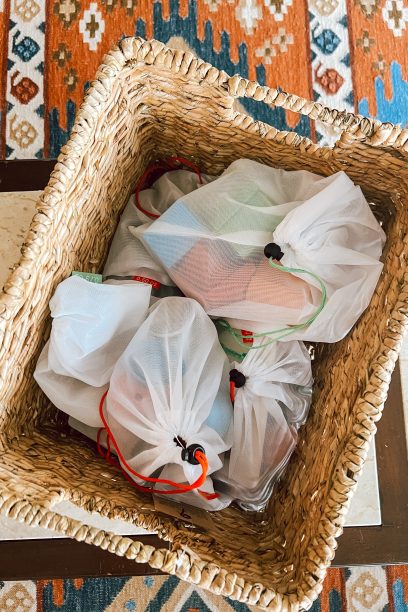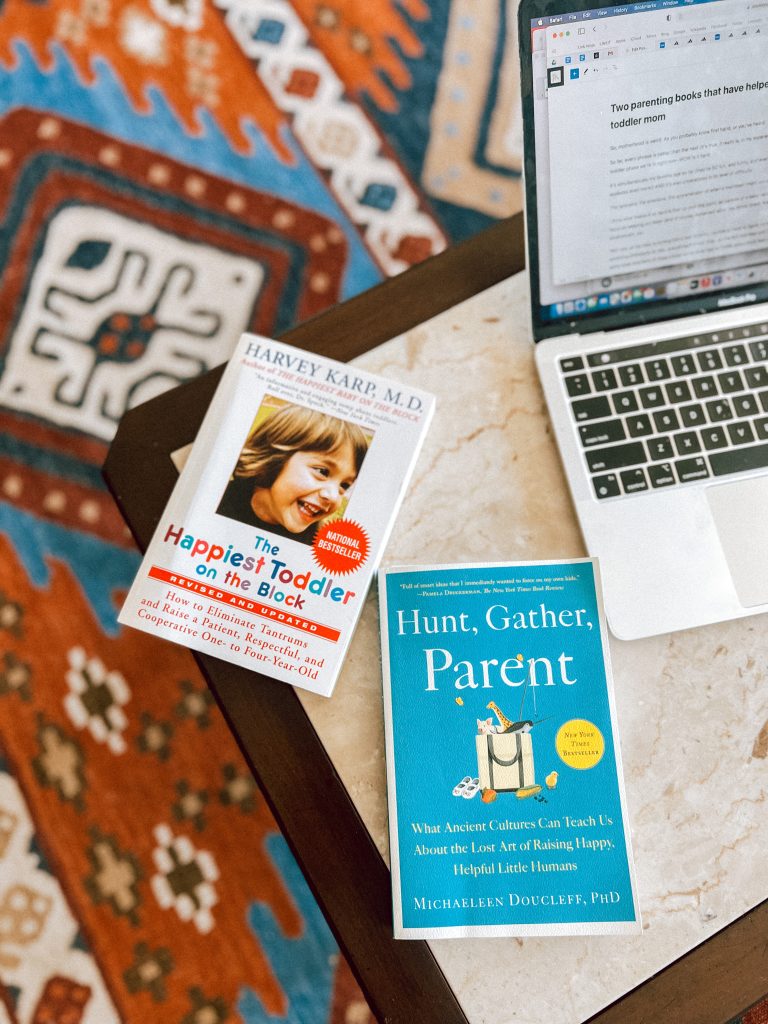
So, motherhood is weird. You likely already either know this first hand, or you’ve heard it from the moms in your life.
So far, every phrase is better than the next (it’s true, it really is, in my experience) but this full-swing toddler phase we’re in right now–WOW is it hard.
It’s simultaneously my favorite age so far (they’re SO fun, and funny, and every day their personality explodes even more!) AND it’s also unparalleled in its level of difficulty.
The tantrums, the emotions, the apprehension of when a meltdown might occur or why. It’s a lot.
I think what makes it so hard is that up until this point, as parents of a baby, we have really only had to focus on keeping our baby (and of course, ourselves) alive. You know, loved, fed, clean, safe sleep environment, etc.
Well now, as my baby is turning into a real HUMAN, I suddenly have to figure out my stance and parenting philosophy on like…everything!? In real time…on the fly? And Neal and I need to be on the same page regarding all these things we’ve never had to THINK about much less discuss and form a united front on.
How do we react when she does X, what is our stance on Y? What are our views on discipline? Consequences? Do we do those? Do we not? Are we “gentle parents?”….How gentle? What do we do when she hits us? How often do we give her Mac and cheese when it’s now the only thing she will eat? Where are our boundaries?! Where is the line in the sand?! AHHH.
Two Parenting Books That Have Helped Me as a Toddler Mom
The easiest way for me to begin dipping my toe into making sense of this new phase is to approach it like I would pretty much any other area in which I’d like to better my life: RESEARCH!
Mainly–what books can I read?
What’s funny is that as a pregnant person, I had NO INTEREST in reading pregnancy books. (Still don’t. Read Emily Oster’s books so you can make the informed choices that are best for you–you need nothing else.)
However, in a drastic turn of events, I have started inhaling parenting books. I suppose you could say this is a new area of genuine interest. (Or maybe it’s not even new, seeing as I read Bringing Up Bebe way before even thinking about getting pregnant, just because I thought it was interesting and reassuring at the same time! More on that here!)
Every day I feel like I figure out something new about toddler development, behavior, what helps, what doesn’t help, etc. Every day is a little bit of an experiment, which is actually kind of fun in its own way, and I think two books in particular have helped me chip away at the puzzle that is toddler behavior.
If I’m real with myself, I think the reason I found so much value in these books is the same reason why I loved reading Bringing Up Bebe years before June was even a blip on our radar–because while I knew I wanted to be a mother one day, I NEEDED a reassurance that there was a parenting philosophy out there that felt like “me”–one that didn’t require me completely burning the life I love to the ground and the end of fun, freedom, travel, restaurants, and time with friends.
So, here we are again–two books that provide [what I believe to be] helpful ways of approaching toddlerhood that will make life easier, better, and far more enjoyable for everyone involved.
Books that prove that life with a toddler doesn’t have to be one long series of meltdowns.
Of course, these books aren’t MAGIC and the things that they talk about do require parents to put in the work. They don’t work ALL the time, and we still have days where we are just ready to pull our hair out–but these moments have become less frequent and less explosive as I’ve tried to implement more of these philosophies I’ve read in these two books. I really think they’ve made a difference in our daily lives.
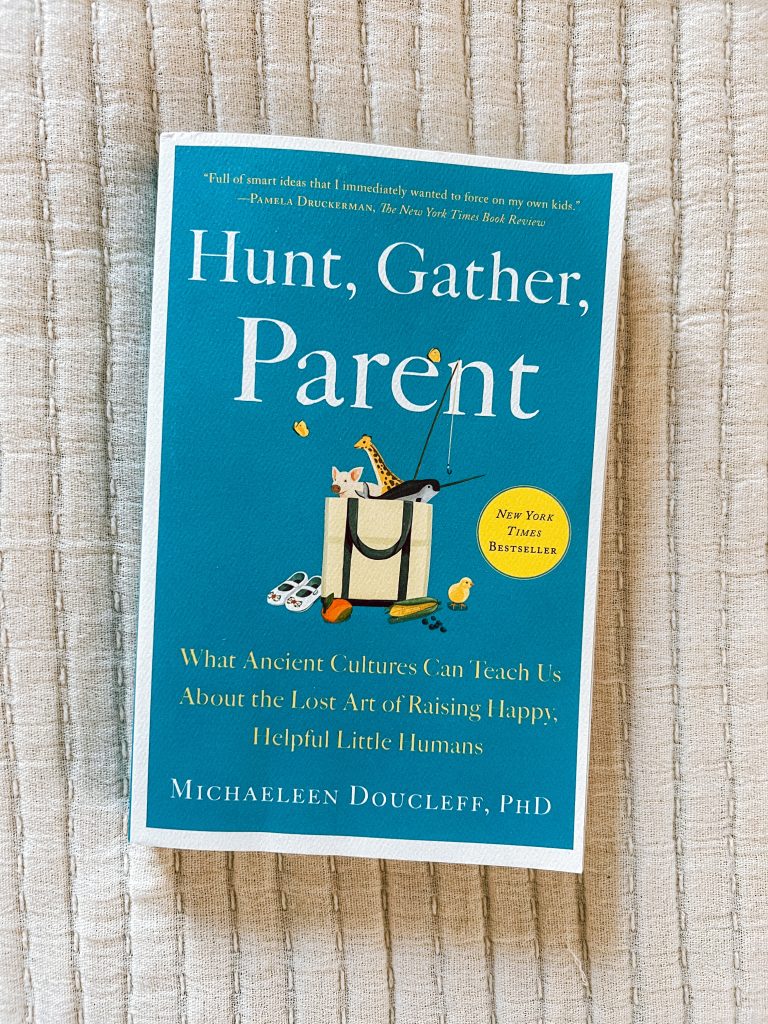
Hunt, Gather, Parent:
This book was recommended to me by so many of you as a response to an Instagram story I posted a couple weeks back asking if I was going to take June to meet the Easter bunny. I responded that to be honest, I hate “kid stuff” like that 😂 I’m not really into kid activities (and I’m honestly dreading the school age days because it seems like we have no other choice but to allow sports and birthday parties to take over our lives 😵💫) and that I’m going to avoid said kid activities as long as I possibly can until she expresses interest in them. Many of you responded, “YOU HAVE TO READ HUNT, GATHER, PARENT!”
Yes, the book does support doing away with a lot of the organized activities and saying no to overpacked schedules, but it is packed with SO much more than that, as the author shares her findings living with families in different cultures, discovering why many of the behavioral issues of western children are obsolete in their societies.
I will admit, some of the things she mentioned surprised me, I think because I was taking them too literally at first. Obviously, take what you want, leave what you don’t, but I thought it was absolutely fascinating and also really helpful. (Anecdotally, I also noticed that many of the concepts she’s talking about aren’t unlike Montessori philosophy.)
Here’s the description:
When Dr. Michaeleen Doucleff becomes a mother, she examines the studies behind modern parenting guidance and finds the evidence frustratingly limited and often ineffective. Curious to learn about more effective parenting approaches, she visits a Maya village in the Yucatán Peninsula. There she encounters moms and dads who parent in a totally different way than we do—and raise extraordinarily kind, generous, and helpful children without yelling, nagging, or issuing timeouts. What else, Doucleff wonders, are Western parents missing out on?
In Hunt, Gather, Parent, Doucleff sets out with her three-year-old daughter in tow to learn and practice parenting strategies from families in three of the world’s most venerable communities: Maya families in Mexico, Inuit families above the Arctic Circle, and Hadzabe families in Tanzania. She sees that these cultures don’t have the same problems with children that Western parents do. Most strikingly, parents build a relationship with young children that is vastly different from the one many Western parents develop—it’s built on cooperation instead of control, trust instead of fear, and personalized needs instead of standardized development milestones.
Maya parents are masters at raising cooperative children. Without resorting to bribes, threats, or chore charts, Maya parents rear loyal helpers by including kids in household tasks from the time they can walk. Inuit parents have developed a remarkably effective approach for teaching children emotional intelligence. When kids cry, hit, or act out, Inuit parents respond with a calm, gentle demeanor that teaches children how to settle themselves down and think before acting. Hadzabe parents are experts on raising confident, self-driven kids with a simple tool that protects children from stress and anxiety, so common now among American kids.
Not only does Doucleff live with families and observe their methods firsthand, she also applies them with her own daughter, with striking results. She learns to discipline without yelling. She talks to psychologists, neuroscientists, anthropologists, and sociologists and explains how these strategies can impact children’s mental health and development. Filled with practical takeaways that parents can implement immediately, Hunt, Gather, Parent helps us rethink the ways we relate to our children, and reveals a universal parenting paradigm adapted for American families.
Overall, I loved the book and read it in two days. However, the one thing this book did leave me wanting was more tangible, real life examples and not just broad over-arching concepts. I wanted more nitty gritty. I also purchased it on my Kindle but then went back and purchased the paperback because I found myself wanting something I could more easily flip back to and reference when needed.
That also brings us to our next book…
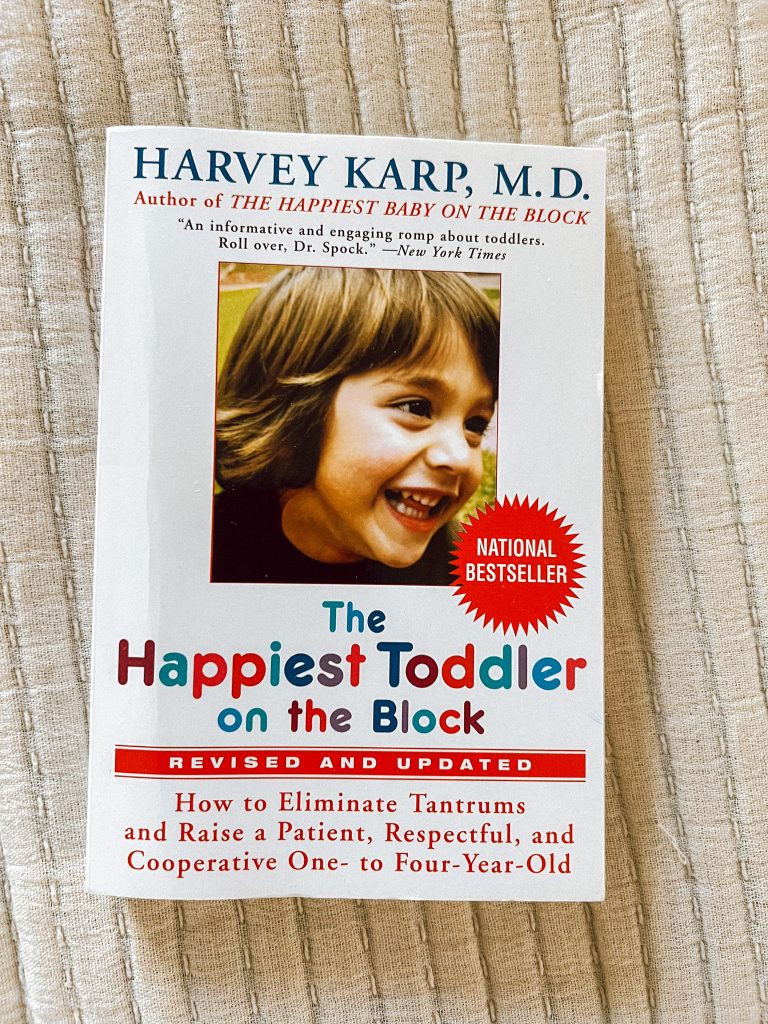
Happiest Toddler on the Block:
Surprisingly (or unsurprisingly?) I thought this book complimented the concepts in Hunt Gather Parent very well, but the advice is granular and tangible. Many people had told me about the book Happiest Baby on the Block (which I never read, because I didn’t need to–we had followed the Moms on Call method and it worked great so I didn’t need anything else). But I saw they had a toddler book and figured it must be pretty great too if everyone raves about the baby version!
Here’s the description:
Perfect for expecting parents who want to prepare themselves for the challenging toddler years (which starts around eight months of age), this essential guide, a national bestseller by respected pediatrician and child development expert Dr. Harvey Karp, not only helps reduce tantrums but makes happy kids even happier by boosting patience, cooperation, and self-confidence.
Toddlers can drive you bonkers…so adorable and fun one minute…so stubborn and demanding the next! Yet, as unbelievable as it sounds, there is a way to turn the daily stream of “nos” and “don’ts” into “yeses” and hugs…if you know how to speak your toddler’ s language. In one of the most useful advances in parenting techniques of the past twenty-five years, Dr. Karp reveals that toddlers, with their immature brains and stormy outbursts, should be thought of not as pint-size people but as pintsize…cavemen.
Having noticed that the usual techniques often failed to calm crying toddlers, Dr. Karp discovered that the key to effective communication was to speak to them in their own primitive language. When he did, suddenly he was able to soothe their outbursts almost every time! This amazing success led him to the realization that children between the ages of one and four go through four stages of “evolutionary” growth, each linked to the development of the brain, and each echoing a step in prehistoric humankind’s journey to civilization…
To speak to these children, Dr. Karp has developed two extraordinarily effective techniques:
1) The “fast food” rule—restating what your child has said to make sure you got it right;
2) The four-step rule—using gesture, repetition, simplicity, and tone to help your
irate Stone-Ager be happy again.
Once you’ve mastered “toddler-ese,” you will be ready to apply behavioral techniques specific to each stage of your child’ s development, such as teaching patience and calm, doing time-outs (and time-ins), praise through “gossiping,” and many other strategies. Then all the major challenges of the toddler years—including separation anxiety, sibling rivalry, toilet training, night fears, sleep problems, picky eating, biting and hitting, medicine taking — can be handled in a way that will make your toddler feel understood. The result: fewer tantrums, less yelling, and, best of all, more happy, loving time for you and your child.
I thought the strategies in this book were really unique and make complete sense–best of all I loved all the example scenarios and actual scripts to say/do broken down by age of child. So many of the ideas it touches on are actually very similar concepts as explored in Hunt Gather Parent, just broken down slightly to be a bit more applicable to everyday life, which I really appreciated! I can’t say that I’ve been able to apply all of these tactics yet, but the ones I’ve started using have worked!
I also liked that both books talked about both preventative approaches and reactionary approaches. So, things you can do to fill your toddler’s cup and make them feel more understood, autonomous, and like a contributing member of the family that will in turn, result in far less meltdowns/outbursts, AND also helpful ways to handle tantrums when they do happen.
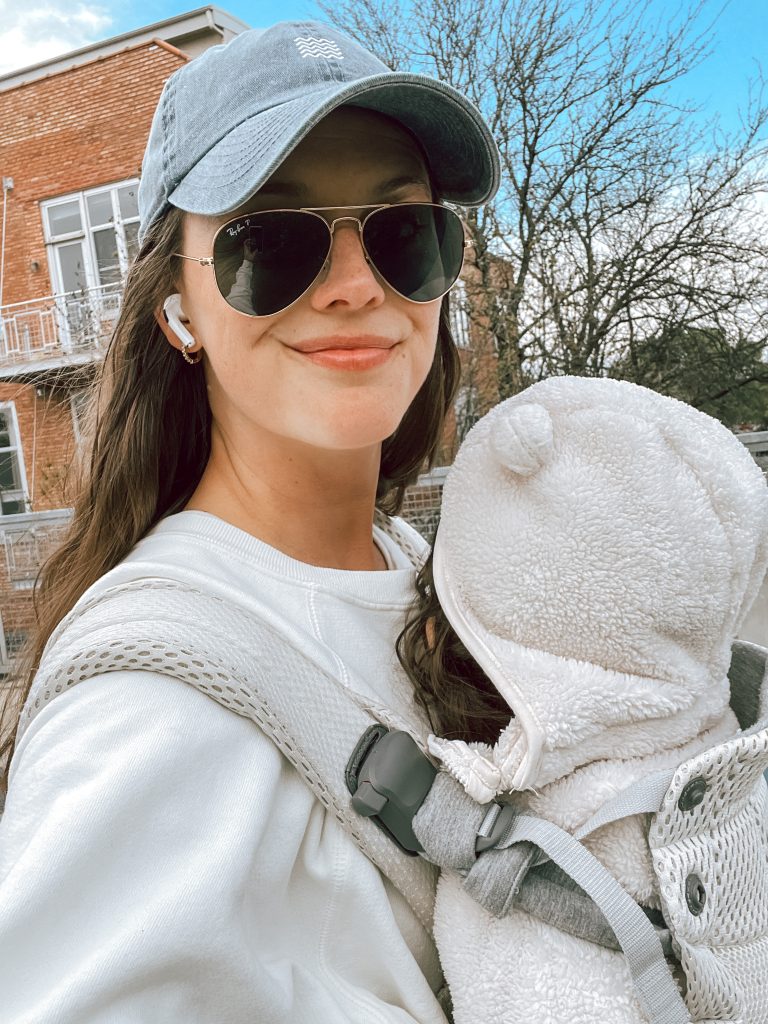
Overall, from one toddler parent to another, I think these two books have more than earned their spot on my nightstand. Also, solidarity! These days are both incredibly hard but incredibly rewarding. (Especially when you implement some of the strategies in these books and they WORK!)
It gets better, remember everything is a phase. You’re doing a great job! ♥️



